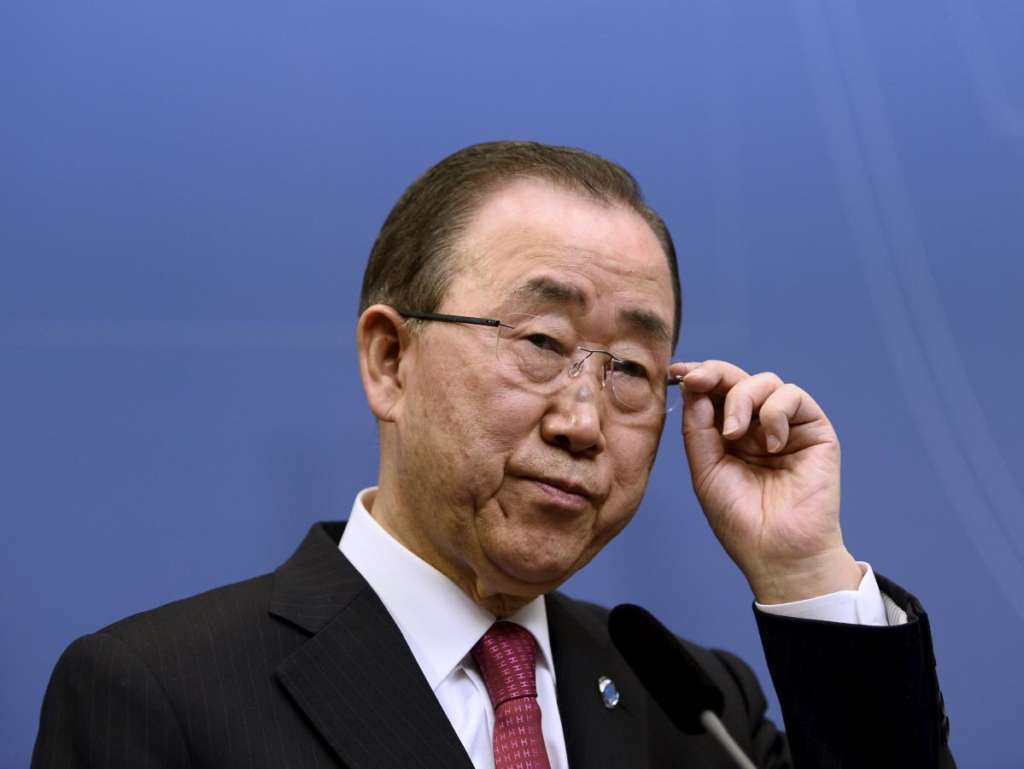Eumseong, South Korea – Saying that Eumseong likes Ban Ki-moon is a bit like saying that Koreans like kimchi. It’s technically true, but it doesn’t quite capture the strength of the feeling.
If you arrive in this backwater south of Seoul by train, you’ll be greeted by a huge banner declaring, “Eumseong is the hometown of U.N. Secretary General Ban Ki-moon.”
But if you arrive by car, you have two options upon arriving. Turn right at the bobble-head statues of Ban with his U.N. briefcase and Ban literally holding the whole world in his hands, drive up Ban Ki-moon Street and past Ban Ki-moon Plaza to head into the town center, where there’s a huge billboard of a smiling Ban and a banner declares the imminent opening of the tae kwon do tournament called, yes, the Ban Ki-moon Cup.
Or, if you continue straight, you’ll arrive at Ban Ki-moon’s birthplace, where a replica of his first home has been built, complete with a sign above one door saying, “The room that Ban Ki-moon was born in.”
Oh, and there’s a museum that tells Ban’s life story: “He is the pride of South Korea and is writing a new chapter for world peace.” You can take home a pamphlet with 19 famous Ban sayings (No. 14: “It is wise to be humble.”)
Yes, this is in South Korea, although anyone who has been to museums and monuments in North Korea lauding founding president Kim Il Sung could be excused for wondering if they took a wrong turn at the demilitarized zone.
But this tired town has few things going for it, so it’s understandable that it wants to capitalize on the fact that Ban, the most prominent South Korean on the global stage, was born here.
This Banstravaganza is paying ever-bigger dividends for Eumseong as speculation mounts that the mild-mannered career diplomat will run for the presidency here.
Ban’s term as secretary general comes to an end in December, and South Korea’s presidential elections are due one year later. The domestic political scene is in a state of disarray, with no clear conservative successor to President Park Geun-hye and an opposition mired in infighting.
Ban meets Park at every multilateral meeting where they’re both present, and one particularly long meeting in New York earlier this year had South Korean columnists speculating they were hatching a plan for the presidency.
Ban, 72, stoked the speculation when, during a six-day visit to South Korea in May, he said at a conference that he would decide what to do next after his term at the United Nations was over. “When I come back on January 1 next year, it will be as a South Korean citizen. That is when I will consider and decide what I ought to do as a South Korean citizen,” Ban said, in a sharp departure from his previous silence on the subject.
Political analysts in Seoul say that if Ban were to run for president, he would almost certainly win, since his name recognition and reputation are so high.
His close acquaintances say that Ban’s decision will be made not out of personal ambition but out of a sense of obligation.
“He is thinking about it very seriously,” said Kim Sook, who served as South Korea’s ambassador to the United Nations until 2013 and remains close to Ban. “He has a deep sense of responsibility and duty to his own people and the nation of South Korea. And many people are asking him to do something for his country.”
But Ban is no politician, and he is not known for having an electric personality. He won the top job at the United Nations in no small part because he had said or done little objectionable, and reviews of his tenure at the world body are not exactly glowing.
But here in Eumseong, he is a hometown hero.
Since his speech in May, the number of visitors to the birthplace and museum complex has doubled to about 500 a day on the weekends, said Woo Chun-ja, who runs the museum.
The Washington Post
